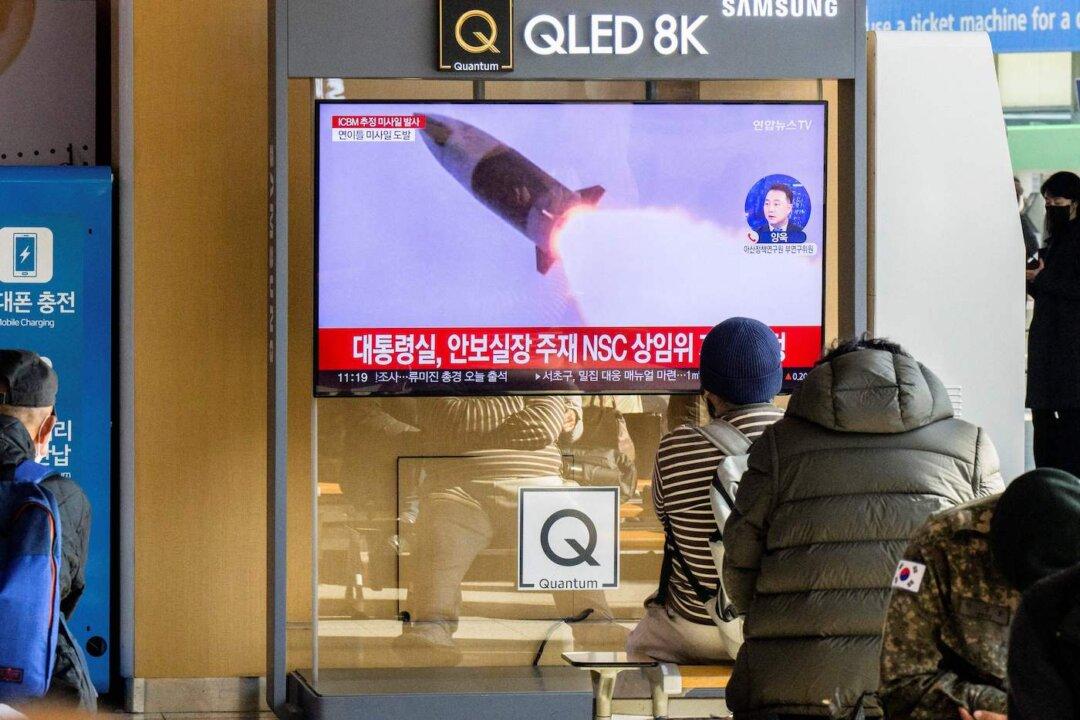North Korea fired what appeared to be an intercontinental ballistic missile (ICBM) on Friday, according to South Korean and Japanese officials, just a day after it had fired a short-range missile and warned of “fiercer” military actions toward the United States.
South Korea’s Joint Chiefs of Staff said in a statement Friday that it had detected a ballistic missile launch off the eastern coast of North Korea on Friday morning and that it was likely an ICBM.




